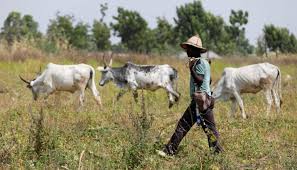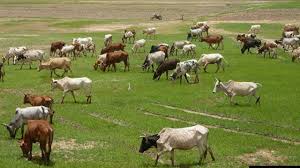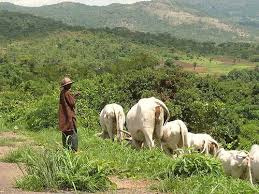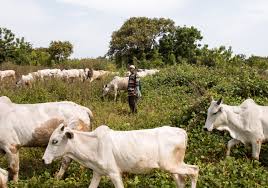Subsistence farmers with limited resources and low farm outputs dominate Nigerian agriculture. However, the crop-livestock integrated system is most commonly found throughout Nigeria.
While improved pastures are primarily established in research institutes, universities, and other private farms, the majority of farmers rely on pastures from natural rangelands.
Rearing animals on pastures in Nigeria helps reduce production costs, as farmers incur no additional expenses before utilizing the abundant pasture resources. Pastures are considered the backbone of the Nigerian livestock industry due to their significant role in sustaining the livestock sector and contributing to the Nigerian economy.
Read Also: Sheep and Goat Housing Complete Guide
Advantages of Pastures in Nigerian Agriculture

Pastures offer numerous advantages in Nigerian farming systems, including:
- They help provide feed for livestock, especially during the rainy season.
- They protect and conserve the soil, thereby preventing erosion and degradation.
- They are used as part of the rotation system, such as ley pastures, to maintain soil health.
- They stabilize sites in dams, under bridges, and in lawns, contributing to land management.
- They serve as sources of income for many Nigerians through the sale of conserved forage.
- They are used in recreational areas such as stadia, polo grounds, and open spaces.
- They provide essential vitamins, such as vitamins A and B, which are vital for healthy living.
- Products from pasture-finished livestock are higher in omega-3 fatty acids and conjugated linoleic acids, which help reduce blood cholesterol levels and decrease cancer risks.
- They create employment opportunities, particularly in forage conservation and marketing.
Constraints to Successful Pasture Production in Nigerian Agriculture

Despite the numerous benefits of pasture production, several challenges have hindered its success since the 1950s. These constraints include:
- Climatic factors in Nigeria do not favor the production of some exotic pasture species, especially in the Sahelian regions.
- Dense forests, particularly in southern Nigeria, hinder the successful establishment of pastures.
- Farmers lack awareness of the importance of pasture production, particularly during dry season periods.
- There is limited interest in pasture production among farmers due to easy access to natural rangelands.
- Poor management practices of natural rangelands contribute to the underutilization of pasture resources.
- Traditional beliefs held by farmers may affect the success of pasture establishment.
- Inadequate land availability, driven by high human population density and competition with crop production, limits pasture expansion.
- Farmers often use unproductive lands for pasture production, rather than fertile soils.
- A lack of knowledge about pasture species and effective production methods further impedes progress.
Read Also: Guide On How To Increase Goats Milk
Relationship Between Pastures and Other Ecosystem Components

In the grassland ecosystem, several relationships exist between its components, helping to maintain balance and provide livestock with nutritious feed. The key components of the system include:
- Soil supports plant growth and provides essential nutrients for pasture species.
- Plants/Pasture Species serve as the primary source of feed for livestock and contribute to soil health.
- Animals benefit from the pastures as their primary source of nutrition.
- Man manages and utilizes the pastures for livestock production and ecosystem maintenance.
- Climate influences the growth patterns and sustainability of pasture species.
This article has highlighted the advantages of pasture production in Nigeria, the constraints faced in its development, and the relationships between various components of the grassland ecosystem. Understanding these factors is crucial for improving forage production and maintaining ecosystem functions that support livestock farming in Nigeria.
Do you have any questions, suggestions, or contributions? If so, please feel free to use the comment box below to share your thoughts. We also encourage you to kindly share this information with others who might benefit from it. Since we can’t reach everyone at once, we truly appreciate your help in spreading the word. Thank you so much for your support and for sharing!

